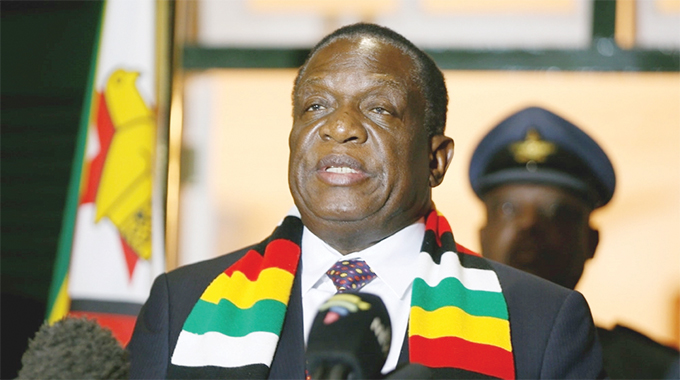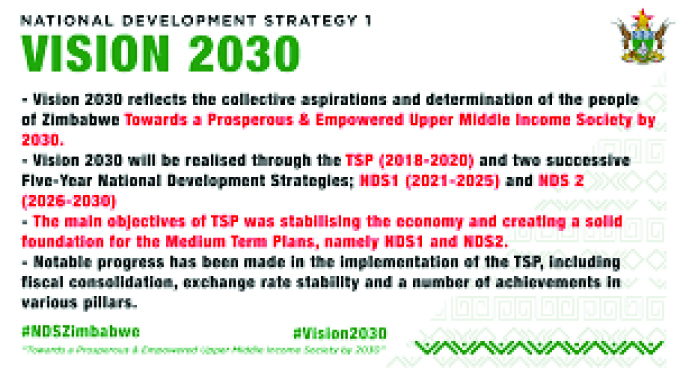ED-nomics: The case for an emerging economy in Zimbabwe

Simbarashe Bepete, Analysis
THE Zimbabwean economy in many ways eludes conventional analysis. Based on orthodox economics, many apparently premature epitaphs have been written of its collapse. I remember reading an article in the venerable Sunday Times of South Africa in the year 2002 predicting that the Zimbabwe economy would grind to a halt in six months. This did not happen.
The words of the renowned classic American author Mark Twain, ‘‘The reports of my death are greatly exaggerated’’ seem to apply to the Zimbabwean economy from time to time. There has always been, it seems, an element of exaggeration in how the challenges of the Zimbabwean economy have been portrayed, particularly post-land reform. Granted, 2008 was not a fairytale. The economy went through an unprecedented tailspin with inflation reaching, as they say, stratospheric levels.
Howbeit, in a strange kind of way the centre was yet able to hold. It has been said, strength can only be measured through adversity. If that standard is applied to the case of Zimbabwe, then one would surmise that its economy is in many ways resilient and robust.
Modern economies are hinged on the ascribing, exchange and distribution of value in a given population using money as the medium of exchange and measure of value. If the writer is given leeway to engage in abstract or even abstruse musings on the very nature of economics, then he would submit that an economy is a triumvirate system.

Zimbabwe
It is made up of three principal constituents namely people, value and money. Economics is thus the study of these 3 and how they inter-relate. As long as these three subsist in any economy, then the same economy will subsist (till Shiloh comes). Therefore, all fears of an impending economic Armageddon in Zimbabwe at present or in the past are and have been largely misplaced.
The present state of the Zimbabwean economy in comparison to years past can be described as stable but nascent. Stable because the supply of goods and services from both public and private entities has been by and large consistent save for the electricity situation that has been exacerbated by the regional power deficit. Also, nascent because the economy is in an evolutionary phase of sorts characterised by a number of greenfield investments that are in the process of coming online buttressed by pro-growth Government policies.
African billionaire, Mo Ibrahim, once said that the gap between perception and reality is what provides for economic opportunity. There is a narrative that is being peddled that suggests that the economy is depressed and in need of a serious political overhaul. This is based on a negative perception that may well be out of touch with reality. Key economic indicators point to the fact that the economy is in positive gear, with traction being gained in key sectors such as mining, agriculture and infrastructure development.
In order to give context, it must be understood that the Zimbabwean economy has been undergoing a sustained transition over the past four decades. The economy has evolved from the pre-1980 structure to a new structure that is reflective of the composition of our society. Pre-1980, the Rhodesians were able by hook, whip and crook to build a thriving economy albeit, for the benefit of a minority group. The legacy
of the Rhodesian economy has bequeathed the country entities and assets that remain integral to the functioning of the economy to this present day. However, the first commissioned capacity of most of these assets and entities presupposed a privileged white minority and a segregated black majority.
Hence, over the years it became imperative on the Zimbabwean Government to expand available capacity in terms of, for example the country’s dam network, power generation, grid infrastructure, road network etc. This effort was somewhat hampered by the itinerant policies of the Paris Club of lender nations towards Zimbabwe. Generally, infrastructure development at a national scale is capital intensive and requires for a developing country to have access to multilateral lines of credit. In the case of Zimbabwe, the limited access to international financing has significantly forestalled infrastructure development for the past so many years. Enter the Second Republic.

Dr Gideon Gono
Beyond political speak and sloganeering, tangible progress has been made in terms of economic development since the ushering into power of the new dispensation under the leadership of President Emmerson Mnangagwa. Probably in anticipation of this new dawn in the nation’s development story, the former central banker Dr Gideon Gono coined the term ‘‘EDnomics’’ in a prescient article published in The Sunday Mail on the 3rd of December 2017. In the quoted article, Dr Gono applauds the positive signals that were coming from Munhumutapa Building during the early days of the Second Republic.
Over the past five years these signals have materialised into concrete reality through a number of signature projects and policies under the ‘‘Zimbabwe is open for business’’ drive.
Every period of rapid progress in history has been predicated on a change in mindset. In a similar manner President Emmerson Mnangagwa’s leadership ethos has caused a shift in the national discourse from a way of thinking that sought economic salvation from the west and/or the east. President Emmerson Mnangagwa’s conviction that a country is built by its own citizens has resonated well with Zimbabwean patriots at home and abroad. It has become a resounding call to action to every citizen to play their own individual part in building a prosperous Zimbabwe.
As a pragmatist, the President has laid out his vision in measurable terms. Vision 2030 as enunciated by the President is not framed in Utopian terms but in plain economic language ie ‘‘towards an upper middle-income society by the year 2030.’’
The country’s economy is on the move. Production records are being set in agriculture and mining. I believe the seeds of an economic renaissance of lasting significance have been sown. There has been resurgent activity in the infrastructure sector. Winter wheat production was at its highest level ever during this 2022 season. Many young farmers have emerged and are now holding their own in the horticulture sector.

Vision 2030
The tobacco industry continues to be a key foreign currency earner and annual production has now far surpassed pre-land reform levels. New and significant deposits of the strategic
mineral lithium have been discovered recently to add on to previously known deposits. There has been
in general ebullient activity in the gold mining sector buoyed by artisanal miners. It is acknowledged that
some work needs to be done in formalizing and increasing the safety standards in many of these greenhorn gold mining ventures.
Prospects for minerals such as nickel and platinum remain high.
Coal production is at its highest levels with Hwange now a boom-town. The first shipment of coal from Zimbabwe to China was reported by Bloomberg News on the 2nd of November 2022. Tertiary Education institutions have been given an expanded mandate under the Education 5.0 model.
This has resulted in renewed vigour in research and development in the country’s universities and colleges with an aim to commercialise research outcomes. This bodes well for future industrial development. All of these developments are attributable to the coterie of policies that make up EDnomics.
The ultimate end goal of all economic development is to improve the quality of life of a nation’s citizens.
This is work in progress. Economic transformation is by its very nature a protracted process. China’s emergence as an economic powerhouse did not happen overnight. The seeds were sown during the Deng Xiaoping era. The President is on record as having drawn important lessons from Deng Xiaoping and how he led the liberalisation and modernisation of China’s economy.
I believe Zimbabwe is on a similar trajectory.
My view is that Zimbabwe might well end up having one of the most prosperous black-run economies in the world in the not-so-distant future. The road may have been at times tortuous but the destination is clear and attainable. In my view EDnomics has provided the framework for industrious and enterprising Zimbabweans to build the country brick by brick. Certain sections of our society may hold contrary opinions but in the end facts will always prevail. EDnomics is about economic growth for the benefit of all and the results are beginning to show.











Comments